‘I felt used’: Former chef at Justin Hemmes’ empire Merivale claims he was overworked and underpaid
A chef has blown the lid on what it’s like to work at Justin Hemmes’ pub empire, claiming staff are forced to work excessive hours for no extra pay.
Business
Don't miss out on the headlines from Business. Followed categories will be added to My News.
Joe had always wanted to be a chef and worked hard to do his apprenticeship and land an important job with a big, glitzy company.
But six months after starting work for Merivale – the billion-dollar hospitality empire owned by Sydney pub tsar Justin Hemmes – the then-20-year-old said he was broken, physically and mentally, and walked away from the industry.
He was a pastry chef at Felix, a French restaurant in Sydney’s CBD, in the shadow of the sprawling Ivy complex – Mr Hemmes’ iconic, flagship venue – for six months from late 2016.
In the end, he had to quit because he had reached a dangerous and worrying breaking point.
“In my time there, I worked on a roster that was always 55 to 60 hours a week, with two double shifts,” Joe, not his real name, told news.com.au.
“Those two double shifts usually went for anywhere between 14 to 16 hours with only a 15-minute break. With a double, I started at 8am and worked right through to 4.30pm or 4.45pm, had a quick bite to eat, and then work again until the kitchen closed at 10pm or 10.30pm.
“But I was a pastry chef so I’d have to stay back until 11 or 11.30 – dessert is the last meal. Then I’d run to try to get the last train home, have four hours sleep and come back the next morning to do it all again.”
Joe is part of a massive class action brought against Merivale by employment law firm Adero, which alleges systemic and long-running wage underpayment to the tune of $126 million.
RELATED: Bombshell claim Merivale chef worked 120 hours without pay
RELATED: Pub empire Merivale cranky about having to pay staff properly
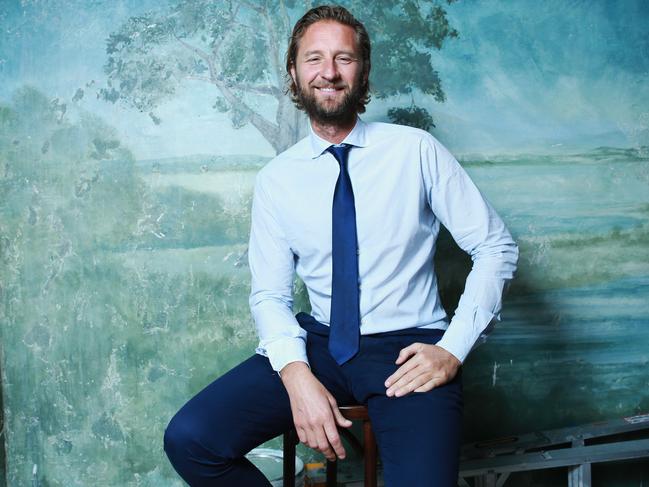
Part of the claim is that salaried employees, mostly chefs and managers, were paid for a contracted 38 hours per week but rostered to work an average of 55 hours, and often more, without additional extra pay.
In a statement, a Merivale spokesperson said the company took the welfare of its workforce seriously.
“Merivale has always had regard to its employees’ health and safety and their personal circumstances, including any family responsibilities, when determining reasonable hours and employees have always been permitted to refuse additional hours where such hours would be unreasonable,” the spokesperson said.
“Merivale is not aware of any of its employees having suffered physical or mental injury as a result of working excessive hours.
“Merivale takes the welfare of its employees seriously and takes steps to ensure that as far as reasonably practicable workers are not exposed to health and safety risks.”
Joe told news.com.au his full-time contract was for 38 hours a week, but that he was required to work at least 55 hours a week on average, and often more.
“It was very taxing on my health, mentally and physically,” he said.
“I lost 13kg in six months due to stress and anxiety. I wasn’t sleeping or eating properly. I was depressed and really anxious.
“I was really starting to spiral. I reckon if I’d stayed much longer than I did, I would’ve become suicidal.”
Do you know more? Please get in touch – email shannon.molloy@news.com.au
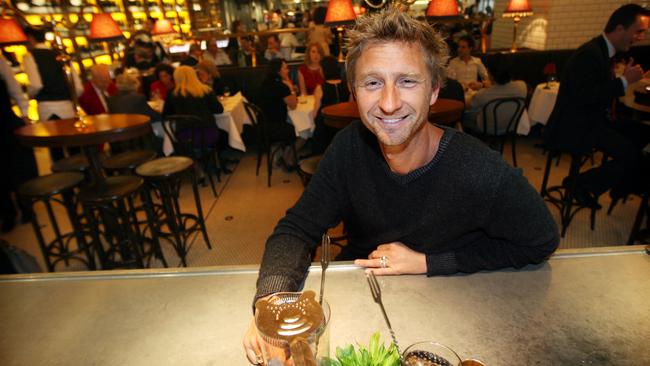
But the worst part was the pay – or lack of – for the enormous number of hours he put in every week, Joe said.
“I’d work 55 to 60 hours but only get paid for 38 of those hours. After tax, I used to take home $729 a week,” he said.
“You had to put up with it and shut up. If you didn’t like it, you had to go work another place.
“You do anywhere between 17 and 22 hours a week of free work. That’s mental. That’s a lot of money lost, a lot of free time put in.”
When he had reached rock bottom, Joe asked Merivale if he could shift to casual work so he could do fewer hours and focus on improving his health and mental wellbeing.
He was allegedly told he could quit and “go elsewhere” if he wanted to. And so, he did.
“It turned me off the whole industry, so I left. It drove me out. Being a chef was what I always wanted. I still love to cook. But it turned me off it as a job,” he said.
A Merivale spokesperson said the company “categorically denies that any of its employees have been required to work unreasonable additional hours against their will”.
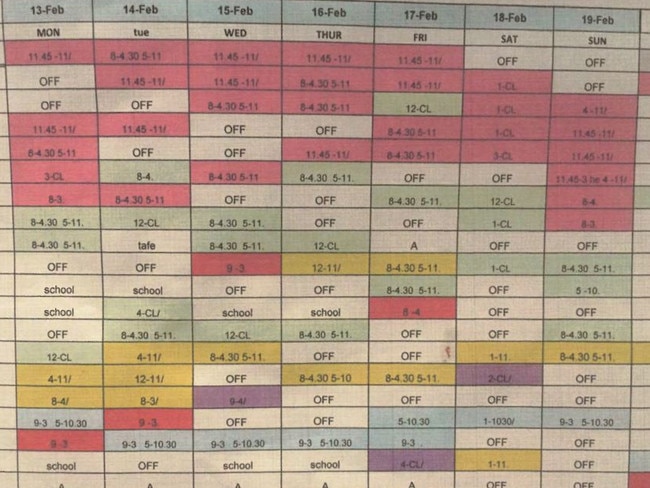
Antonio Chiamenti lasted five years with Merivale, working as a pizza chef at its glamorous Coogee Pavilion venue in Sydney’s eastern suburbs.
But that long tenure was mostly because he was “stuck”, Mr Chiamenti said. The Italian started working as a pizza chef on a working holiday visa before Merivale sponsored his full-time employment.
“I was kind of stuck with them because of the visa. I was sponsored for a visa so I couldn’t leave. Leaving and going to another company would have been impossible. So, that was the main reason I stayed,” he said.
He too was paid a salary for a contracted 38 hours per week but was allegedly required to put in at least 50 hours, and often 55 or more, he said.
“Normally, my roster, I had two days off a week. Every other day I was working 10 or 11 hours, never less. Sometimes 12 hours. I would get a half-an-hour break each shift.
“On a Saturday or Sunday, I’d work 12 hours in the (pizza kitchen) at Coogee Pavilion making 1000 pizzas a day.
“It gets tiring after a while. It’s non-stop. I would start my shift at 11 o’clock in the morning and work until 4.30pm, then half my half an hour break, then on again until 11pm.”
RELATED: Mental health of chefs and hospitality’s high suicide rate in the spotlight
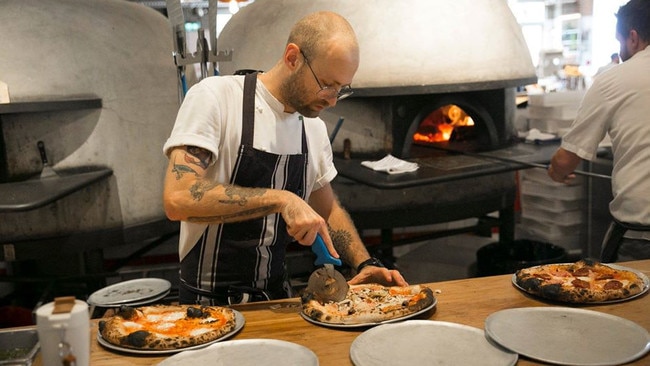
Mr Chiamenti took home $824 a week after tax and struggled to get by, but the expectation was the gruelling hours were just part of the job.
“I understand that hospitality sometimes requires long days, but this was systematic, every single week. It was required to work at least 50 hours,” he said.
In winter months when the beachside venue’s patronage dwindled, Mr Chiamenti would occasionally leave a little earlier when it was quiet.
But it was noticed and called out, he alleges.
“In winter if it was quiet, we might finish a little early and I might only work 48 hours a week. The next week, HR would call me and ask ‘why did you only do 48 hours and not 50? What happened? Everyone is doing 50 hours.’
“That was the requirement – that you always work at least 50 hours no matter what. Those calls happened maybe three times.”
Mr Chiamenti is part of Adero’s open class action on behalf of an estimated 8000 former and current Merivale staff, which has attracted 235 registrations already.
“I feel like I was used for five years. I tried to make a life for myself and if I would’ve gotten the money I (claim I) was entitled to, life would’ve been much easier.
“I don’t want to complain but that extra money would have helped so much. I wouldn’t be struggling so much now trying to get back on my feet (financially).”
RELATED: Inside the spectacular collapse of George Calombaris’ hospitality empire
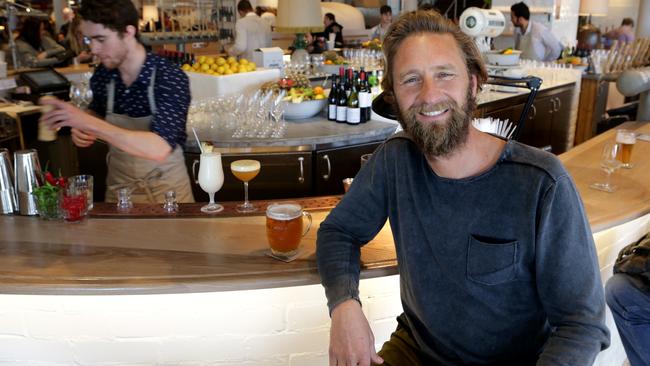
In 2019, Mr Chiamenti received permanent residency in Australia and finally felt free – no longer trapped by a sponsored visa.
He quit his job at Merivale at the end of last year and is now working at another restaurant in Sydney, where he feels valued and appreciated.
And most importantly, he’s paid for every single hour he works.
“It’s good. They’re good to me and I like it. I get paid what I’m supposed to get paid. I see the difference now after getting out of Merivale. I realise how much I lost in five years.”
In a statement, a Merivale spokesperson attacked Adero and accused it of running “a sensationalised campaign via the media”.
The spokesperson strongly denied all allegations of mistreatment and said the company “regularly reviews its compliance regarding employee entitlements”.
“Merivale has always acted with the interests of its workforce squarely in mind and does not anticipate that its employees will in any way benefit from these proceedings,” the spokesperson said.
“Nevertheless, if necessary, Merivale will vigorously defend any claim.”
Originally published as ‘I felt used’: Former chef at Justin Hemmes’ empire Merivale claims he was overworked and underpaid



